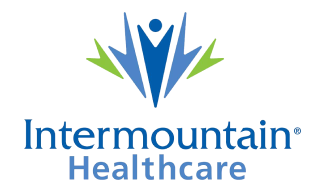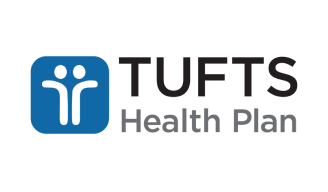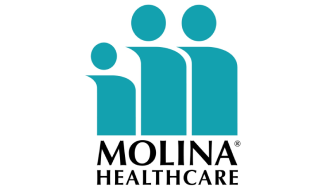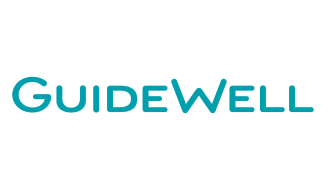
Falmouth, Massachusetts, United States
The Recovery Team - Cape Cod
Verified
Verified
This provider’s information has been quality-checked by Recovery.com’s Research Team for accuracy and completeness, including center verification through appropriate third-party organizations.
Joint Commission Accredited
The Joint Commission accreditation is a voluntary, objective process that evaluates and accredits healthcare organizations (like treatment centers) based on performance standards designed to improve quality and safety for patients. To be accredited means the treatment center has been found to meet the Commission's standards for quality and safety in patient care.
Provider's Policy
We work with most insurances.
Estimated Cash Pay Rate
The cost listed here ($8,700-$22,000/30 days) is an estimate of the cash pay price. Center pricing can vary based on program and length of stay. Contact the center for more information. Recovery.com strives for price transparency so you can make an informed decision.
Highlights from the Center
Highlights
These highlights are provided by and paid for by the center.
Equine Therapy
Holistic Approach
Pool
Addiction Recovery
About The Recovery Team - Cape Cod
Recovery Team Cape Cod (previously called Recovering Champions) is dedicated to tailoring treatment plans to meet each individual's unique needs. Whether someone is starting their recovery journey or working to maintain sobriety, the center offers a continuum of care, including partial hospitalization (PHP), intensive outpatient programs (IOP), and outpatient services. Their structured yet flexible approach allows clients to progress at their own pace while specializing in treating alcohol, opioids, marijuana, ketamine, polysubstance abuse, benzodiazepines, and methamphetamine addiction.
Empathetic Staff with Lived Experience
A hallmark of Recovery Team is its empathetic team, many of whom are in recovery themselves. By sharing their lived experiences, the staff creates a supportive, relatable environment where clients feel understood and motivated. This unique approach fosters trust and engagement throughout the recovery process.
Holistic and Comprehensive Care
The outpatient program goes beyond addressing substance use; it takes a holistic approach, addressing physical, emotional, and spiritual well-being. Alongside evidence-based treatments like counseling and medication-assisted treatment (MAT), the program incorporates wellness practices such as yoga, meditation, and family therapy.
Develop Trust Through Equine-Assisted Therapy
Recovery Team's Cape Cod location also offers equine-assisted therapy, providing a unique opportunity for personal growth and healing. Through interactions with horses, clients develop trust, emotional regulation, and self-awareness in a calming environment. This innovative therapy complements their comprehensive treatment approach, empowering clients to overcome challenges and build confidence.
Read More

Treatment That Fits Into Daily Life
Recovering Champions offers flexible, client-centered care that adapts to individual needs and schedules. Their outpatient programs are designed to seamlessly integrate into daily life, allowing clients to prioritize recovery without disrupting work or personal commitments. With treatment starting as early as 7 a.m., clients have access to a variety of convenient scheduling options for therapy and counseling.
Supportive Team with Shared Experience
Recovering Champions stands out for its compassionate team, many of whom are in recovery themselves. Their shared experiences create a relatable and supportive environment where clients feel understood, fostering trust and motivation throughout the recovery journey.
Meaningful Change with 12-Step Support
Recovering Champions embraces the 12-Step philosophy in their outpatient programs. Through engaging group sessions, personalized counseling, and meaningful peer support, clients progress through the steps at their own pace, helping to build a lasting foundation.

Center Overview
Estimated Cash Pay Rate
Men and Women
Men and women attend treatment for addiction in a co-ed setting, going to therapy groups together to share experiences, struggles, and successes.

Treatment Focus
You can admit to this center with a primary substance use disorder or a primary mental health condition. You'll receive support each step of the way and individualized care catered to your unique situation and diagnosis.
Treatment
Specializations
Trauma-Specific Therapy
This form of talk therapy addresses any childhood trauma at the root of a patient's current diagnosis.
Alcohol
Using alcohol as a coping mechanism, or drinking excessively throughout the week, signals an alcohol use disorder.
Anxiety
Anxiety is a common mental health condition that can include excessive worry, panic attacks, physical tension, and increased blood pressure.
Co-Occurring Disorders
A person with multiple mental health diagnoses, such as addiction and depression, has co-occurring disorders also called dual diagnosis.
Drug Addiction
Drug addiction is the excessive and repetitive use of substances, despite harmful consequences to a person's life, health, and relationships.
Acceptance and Commitment Therapy (ACT)
This cognitive behavioral therapy teaches patients to accept challenging feelings and make the appropriate changes to reach personal goals.
Treatment Services
Day Treatment
In a PHP, patients live at home but follow an intensive schedule of treatment. Most programs require you to be on-site for about 40 hours per week.
Intensive Outpatient Program
In an IOP, patients live at home or a sober living, but attend treatment typically 9-15 hours a week. Most programs include talk therapy, support groups, and other methods.
Outpatient
During outpatient rehab, patients attend a structured treatment program while continuing to live at home.
Approaches
Evidence-Based
A combination of scientifically rooted therapies and treatments make up evidence-based care, defined by their measured and proven results.
Holistic
A non-medicinal, wellness-focused approach that aims to align the mind, body, and spirit for deep and lasting healing.
Personalized Treatment
The specific needs, histories, and conditions of individual patients receive personalized, highly relevant care throughout their recovery journey.
Therapies
1-on-1 Counseling
Patient and therapist meet 1-on-1 to work through difficult emotions and behavioral challenges in a personal, private setting.
Meditation & Mindfulness
A practiced state of mind that brings patients to the present. It allows them to become fully aware of themselves, their feelings, and the present moment.
Art Therapy
Visual art invites patients to examine the emotions within their work, focusing on the process of creativity and its gentle therapeutic power.
Equine Therapy
Guided interactions with trained horses, their handler, and a therapist can help patients improve their self-esteem, trust, empathy, and social skills.
Family Therapy
Family therapy addresses group dynamics within a family system, with a focus on improving communication and interrupting unhealthy relationship patterns.
Life Skills
Teaching life skills like cooking, cleaning, clear communication, and even basic math provides a strong foundation for continued recovery.
Motivational Interviewing
Based on the idea that motivation to change comes from within, providers use a conversational framework to discover personalized methods for change.
Music Therapy
Singing, performing, and even listening to music can be therapeutic. Music therapy sessions are facilitated by certified counselors.
Conditions We Treat
Personality Disorders
Personality disorders destabilize the way a person thinks, feels, and behaves. If untreated, they can undermine relationships and lead to severe distress.
ADHD, ADD
ADHD is a common mental health condition caused by dopamine imbalance. Common symptoms include inattention, hyperactivitiy, and impulsivity.
Anger
Although anger itself isn't a disorder, it can get out of hand. If this feeling interferes with your relationships and daily functioning, treatment can help.
Anxiety
Anxiety is a common mental health condition that can include excessive worry, panic attacks, physical tension, and increased blood pressure.
Bipolar
This mental health condition is characterized by extreme mood swings between depression, mania, and remission.
Codependency
Codependency is a pattern of emotional dependence and controlling behavior. It's most common among people with addicted loved ones.
Post Traumatic Stress Disorder
PTSD is a long-term mental health issue caused by a disturbing event or events. Symptoms include anxiety, dissociation, flashbacks, and intrusive thoughts.
Trauma
Some traumatic events are so disturbing that they cause long-term mental health problems. Those ongoing issues can also be referred to as "trauma."
Substances We Treat
Alcohol
Using alcohol as a coping mechanism, or drinking excessively throughout the week, signals an alcohol use disorder.
Benzodiazepines
Benzodiazepines are prescribed to treat anxiety and sleep issues. They are highly habit forming, and their abuse can cause mood changes and poor judgement.
Co-Occurring Disorders
A person with multiple mental health diagnoses, such as addiction and depression, has co-occurring disorders also called dual diagnosis.
Cocaine
Cocaine is a stimulant with euphoric effects. Agitation, muscle ticks, psychosis, and heart issues are common symptoms of cocaine abuse.
Drug Addiction
Drug addiction is the excessive and repetitive use of substances, despite harmful consequences to a person's life, health, and relationships.
Ecstasy
Ecstasy is a stimulant that causes intense euphoria and heightened awareness. Abuse of this drug can trigger depression, insomnia, and memory problems.
Heroin
Heroin is a highly addictive and illegal opioid. It can cause insomnia, collapsed veins, heart issues, and additional mental health issues.
Methamphetamine
Methamphetamine, or meth, increases energy, agitation, and paranoia. Long-term use can result in severe physical and mental health issues.
Opioids
Opioids produce pain-relief and euphoria, which can lead to addiction. This class of drugs includes prescribed medication and the illegal drug heroin.
Aftercare
Experience
Personal Amenities
Amenities
Activities
Yoga
Yoga is both a physical and spiritual practice. It includes a flow of movement, breathing techniques, and meditation.
Off-Site Activities
Yoga
Yoga is both a physical and spiritual practice. It includes a flow of movement, breathing techniques, and meditation.
Professional Staff

Jeff Spruance
Clinician
MA

Jennifer Wilmot
Clinician
M.Ed., LADC 1

Liz Forgue-McRae
Program Director
M.Ed, LMHC,MCCS

Ron Marcellus
Clinical Supervisor
LMHC, LADC I
View More Team Members
Learn more about The Recovery Team - Cape Cod
Testimonial
The staff is very helpful, and they have great care and passion for what they do. They work cohesively as a team to provide the best care.
Shane
We love hearing about your treatment experience
Help individuals and families seeking treatment by sharing your first-hand experience with this treatment provider. Review Guidelines.










































